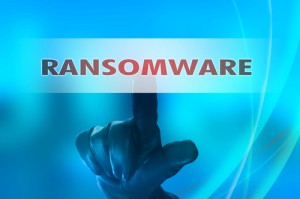Posted by Health Law Informer Author
on July 13, 2016
HHS,
OCR /
No Comments
 In response to the increasing prevalence of ransomware cyber-attacks by hackers on electronic health information systems in hospitals and medical practices, the Department of Health and Human Services (HHS) Office for Civil Rights (OCR) announced on Monday July 11, 2016 its publication of new HIPAA guidance on ransomware (“Ransomware Guidance”). According to OCR:
In response to the increasing prevalence of ransomware cyber-attacks by hackers on electronic health information systems in hospitals and medical practices, the Department of Health and Human Services (HHS) Office for Civil Rights (OCR) announced on Monday July 11, 2016 its publication of new HIPAA guidance on ransomware (“Ransomware Guidance”). According to OCR:
Ransomware is a type of malware (or malicious software) that encrypts data with a key known only to the hacker and makes the data inaccessible to authorized users. After the data is encrypted, the hacker demands that authorized users pay a ransom (usually in a cryptocurrency such as Bitcoin to maintain anonymity) in order to obtain a key to decrypt the data.
Notably, the HIPAA Security Rule already requires implementation of security measures to help covered entities and business associates prevent the introduction of malware (e.g., ransomware) into their systems, and to implement policies and procedures to assist in responding to ransomware attacks. The Ransomware Guidance addresses, among other areas, how to implement security measures in order to prevent, mitigate the chances of, or even recover from ransomware attacks. Not surprisingly, conducting a risk analysis (or risk assessment) is at the core of covered entities and business associates implementing security management processes as required by the HIPAA Security Rule. The Ransomware Guidance further notes that maintaining an overall contingency plan, as required by the Security Rule, that includes disaster recovery planning, emergency operations planning and frequent backups of data can also help covered entities and business associates respond to and recover from malware infections, including ransomware attacks.
In addition, the Ransomware Guidance states that ransomware attacks against a covered entity or business associate can be considered a breach under the HIPAA Rules. Specifically, the Ransomware Guidance provides, “[w]hen electronic protected health information (ePHI) is encrypted as the result of a ransomware attack, a breach has occurred because the ePHI encrypted by the ransomware was acquired (i.e. unauthorized individuals have taken possession or control of the information), and thus is a ‘disclosure’ not permitted under the HIPAA Privacy Rule.” Therefore, unless it can be shown that there is a low probability that the PHI involved in the ransomware attack has been compromised based on the factors in the Breach Notification Rule, a breach is presumed to have occurred, which would trigger the applicable breach notification provisions.
Even before OCR’s publication of the Ransomware Guidance, in late June the Secretary of HHS sent a letter (“Letter”) to the attention of chief executive officers at health care entities addressing the threat of ransomware. The Secretary attached interagency guidance to the Letter containing best practices and mitigation strategies integral to combatting ransomware incidents.
Ransomware is immediately disruptive to the day-to-day operation of businesses, as seen by its impact earlier this year on health care systems like MedStar in Washington, D.C. and Hollywood Presbyterian Medical Center in Los Angeles (“HPMC”), resulting for example, in HPMC paying 40 Bitcoins (approximately $17,000) to regain control of its computer system. Although the Ransomware Guidance does not address whether payment or ransom should be paid to regain access to computer systems, the interagency guidance attached to the Letter advises against paying hackers because, among other reasons, paying a ransom doesn’t necessarily guarantee that an entity will regain access to its system. The Ransomware Guidance does recommend that an entity victimized by a ransomware attack contact its local FBI or United States Secret Service field office.
For more information about the Ransomware Guidance contact Gregory M. Fliszar, Ryan Blaney, J. Nicole Martin or a member of Cozen O’Connor’s Health Law team.
About The Authors
Tags: attacks, best practice, bitcoin, Business Associate, covered entity, encrypt, guidance, hacker, HHS, HIPAA, HITECH, malicious, OCR, privacy, ransom, ransomware, security, software
Posted by Health Law Informer Author
on March 22, 2016
HHS,
OCR /
No Comments
The Department of Health and Human Services (HHS) Office of Civil Rights (OCR) finally announced on March 21 that it is ready to begin Phase Two of its HIPAA audit program, which will include business associates. These audits, mandated by HITECH, will primarily be comprised of desk audits, scheduled for completion by the end of December 2016, followed by onsite audits.
OCR explained it will immediately commence Phase Two by verifying, via email, cover entities’ and business associates’ contact information. The OCR is requesting timely responses, so that it can send pre-audit questionnaires out in order to gather data from covered entities and business associates for the creation of potential audit subject pools. The data will relate to the entities’ size, type and operations. Should covered entities and business associates fail to respond to OCR’s requests, they may still be part of OCR’s potential subject pools because OCR plans to compile publicly available information about covered entities and business associates that do not respond to its requests.
The first round of desk audits will focus on covered entities, and the second round will focus on business associates. The third round will be onsite audits, with a greater focus on the HIPAA requirements. OCR explains that some covered entities and business associates who are subject to desk audits may also be subject to onsite audits. According to OCR, all covered entities and business associates are eligible to be audited. The audits will focus on identifying compliance with specific privacy and security requirements under HIPAA/HITECH, and OCR will notify auditees by letter, regarding the subject(s) of their specific audits. On the HHS website, OCR provides a sample letter for review. Subsequent to the audits, OCR will review and analyze information from audit final reports.
Importantly, if an audit report uncovers significant noncompliance with HIPAA, it could prompt an investigation by OCR. The areas of interest for OCR in Phase Two will become clearer as the Phase Two audit program gets underway, but for now, we know OCR will focus on assessing covered entities’ and business associates’ HIPAA compliance, identifying best practices and discovering risks and vulnerabilities.
More information about the Phase Two audits is available here, and you can also contact Greg Fliszar, Ryan Blaney, J. Nicole Martin or another member of Cozen O’Connor’s Health Law team.
About The Authors
Tags: audit, best practice, Business Associate, Compliance, covered entity, HHS, HIPAA, HITECH, investigation, OCR, phase two, pre-audit, privacy, questionnaires, report, security, subject pool
Posted by Health Law Informer Author
on September 26, 2014
ACA,
CMS,
HHS,
HIPAA,
HITECH,
Privacy /
No Comments

12,915 complaints were reported in 2013 to the Department of Health and Human Services Office of Civil Rights (“OCR”) according to Illiana L. Peters, Senior Adviser for HIPAA Compliance and Enforcement. Cozen O’Connor attended Ms. Peters’ presentation at the Safeguarding Health Information: Building Assurance through HIPAA Security conference on September 22-23, 2014. The conference was hosted jointly by OCR and the National Institute of Standards and Technology (“NIST”). Below are a few discussion points worth mentioning from the conference:
- Between September 2009 and August 31, 2014, OCR investigated 1176 reports involving breach of Protected Health Information (“PHI”) where more than 500 individuals were affected and approximately 122,000 reports affecting less than 500 individuals.
- According to Ms. Peters, 60% of the large breaches could have been prevented by encrypting the covered entities and business associates’ laptops and mobile devices.
- Theft and loss continues to be the most common cause of breaches but OCR expects that IT hacking will continue to rise as a significant breach risk.
- Since 2009, consumer complaints regarding HIPAA violations continue to rise.
- Covered entities and business associates should already have in place business associate agreements that have been updated for the Omnibus Rule.
- Business associates must comply with all of the HIPAA Security Rules applicable to covered entities, “PERIOD.”
- Given the known risks of hacking, theft and loss and the direct guidance from OCR, covered entities and business associates must recognize that inadequate security, inadequate physical and technical safeguards is not acceptable.
- OCR expects that covered entities and business associates will be familiar with recent corrective actions, resolution agreements such as Parkview, NYP/Columbia, Concentra, QCA, Skaget County, Adult & Pediatric Dermatology, P.C., and Affinity Health Plan, Inc.
Continue reading…
About The Author
Tags: audit, breach, Business Associate, HHS, HIPAA, HITECH, NIST, OCR, Privacy Rule, Security Rule
Posted by Health Law Informer Author
on June 27, 2013
HIPAA,
HITECH /
No Comments
 As we’ve discussed in previous articles,[1] and as you are no doubt aware by now, the Health Insurance Portability and Accountability Act (HIPAA) recently received a significant facelift. In addition to extending direct liability to business associates and subcontractors, the updated HIPAA regulations (Updated Regulations), which were authorized by the Health Information Technology for Economic and Clinical Health Act (HITECH), contain many new provisions to address growing privacy concerns for the increasing amount of protected health information (PHI) stored on electronic media. Covered entities and their business associates and subcontractors must comply with the Updated Regulations by September 23, 2013. In order to help you prepare for the September 23, 2013 compliance deadline, this article (1) explains the difference between two important compliance deadlines contained in the Updated Regulations, (2) suggests a 5-step process to efficiently update and/or create compliant HIPAA policies and procedures, and (3) discusses a few observations we’ve made as we’ve helped our clients prepare for the September 23, 2013 compliance deadline. Continue reading…
As we’ve discussed in previous articles,[1] and as you are no doubt aware by now, the Health Insurance Portability and Accountability Act (HIPAA) recently received a significant facelift. In addition to extending direct liability to business associates and subcontractors, the updated HIPAA regulations (Updated Regulations), which were authorized by the Health Information Technology for Economic and Clinical Health Act (HITECH), contain many new provisions to address growing privacy concerns for the increasing amount of protected health information (PHI) stored on electronic media. Covered entities and their business associates and subcontractors must comply with the Updated Regulations by September 23, 2013. In order to help you prepare for the September 23, 2013 compliance deadline, this article (1) explains the difference between two important compliance deadlines contained in the Updated Regulations, (2) suggests a 5-step process to efficiently update and/or create compliant HIPAA policies and procedures, and (3) discusses a few observations we’ve made as we’ve helped our clients prepare for the September 23, 2013 compliance deadline. Continue reading…
About The Author
Tags: Business Associate Agreements, Compliance, HIPAA, HIPAA Policies and Procedures, HITECH
Posted by Health Law Informer Author
on March 12, 2013
Affordable Care Act,
HIPAA,
HITECH /
No Comments
 On January 25, 2013, the Office of Civil Rights (OCR) of the Department of Health & Human Services (HHS) published the long-awaited omnibus final regulation governing health data privacy, security and enforcement (Omnibus Rule).[i] The Omnibus Rule is a group of regulations that finalizes four sets of proposed or interim final rules, including changes to the Health Insurance Portability and Accountability Act (HIPAA) Privacy and Security Rules mandated by the Health Information Technology for Economic and Clinical Health (HITECH) Act[ii] and proposed in 2010;[iii] changes to the interim final breach notification rule;[iv] modifications to the interim final enforcement rule; and implementation of changes to the Genetic Information Nondiscrimination Act of 2008 (GINA). The Omnibus Rule goes into effect on March 26, 2013, and compliance is required by September 23, 2013. As expected, the Omnibus Rule did not finalize the May 31, 2011 proposed regulation regarding accounting for disclosures. Continue reading…
On January 25, 2013, the Office of Civil Rights (OCR) of the Department of Health & Human Services (HHS) published the long-awaited omnibus final regulation governing health data privacy, security and enforcement (Omnibus Rule).[i] The Omnibus Rule is a group of regulations that finalizes four sets of proposed or interim final rules, including changes to the Health Insurance Portability and Accountability Act (HIPAA) Privacy and Security Rules mandated by the Health Information Technology for Economic and Clinical Health (HITECH) Act[ii] and proposed in 2010;[iii] changes to the interim final breach notification rule;[iv] modifications to the interim final enforcement rule; and implementation of changes to the Genetic Information Nondiscrimination Act of 2008 (GINA). The Omnibus Rule goes into effect on March 26, 2013, and compliance is required by September 23, 2013. As expected, the Omnibus Rule did not finalize the May 31, 2011 proposed regulation regarding accounting for disclosures. Continue reading…
About The Author
Tags: Breach Notification, Business Associate, Business Associate Agreement, HIPAA, HITECH, Privacy Rule, Security Rule
Posted by Health Law Informer Author
on December 10, 2012
Uncategorized /
No Comments
 Since the implementation of the privacy and security regulations of the Health Insurance Portability and Accountability Act (“HIPAA”) in 2003 and 2005 respectively, business associates (“BAs”) – those entities that perform services for or on behalf of covered entities – had been a weak link in the overall protection of protected health information (“PHI”). BAs were not directly subject to HIPAA, but were only indirectly subject to its requirements through the business associate agreements – which were generally boilerplate – that covered entities were required to maintain as a condition of sharing PHI. Thus, under the original regulatory structure, the only risk for a BA was for a breach of contract. Continue reading…
Since the implementation of the privacy and security regulations of the Health Insurance Portability and Accountability Act (“HIPAA”) in 2003 and 2005 respectively, business associates (“BAs”) – those entities that perform services for or on behalf of covered entities – had been a weak link in the overall protection of protected health information (“PHI”). BAs were not directly subject to HIPAA, but were only indirectly subject to its requirements through the business associate agreements – which were generally boilerplate – that covered entities were required to maintain as a condition of sharing PHI. Thus, under the original regulatory structure, the only risk for a BA was for a breach of contract. Continue reading…
About The Author
Tags: Business Associate, HIPAA, HITECH
Posted by Health Law Informer Author
on October 16, 2012
HIPAA,
HITECH,
Medicaid,
Medicare /
No Comments
 Since the Health Insurance Portability and Accountability Act (“HIPAA”) privacy rules became effective in April 2003, there has been minimal enforcement activity by the U.S. Department of Health and Human Services (“HHS”) Office of Civil Rights (“OCR”). However, this has changed dramatically over the last two years, as evidenced by some recent high-profile and high-penalty enforcement actions taken by OCR. In addition to being concerned about OCR investigations, moreover, covered entities and business associates must also be on the alert for enforcement actions by state Attorney Generals, potential class action lawsuits, and OCR’s HIPAA audit program. Continue reading…
Since the Health Insurance Portability and Accountability Act (“HIPAA”) privacy rules became effective in April 2003, there has been minimal enforcement activity by the U.S. Department of Health and Human Services (“HHS”) Office of Civil Rights (“OCR”). However, this has changed dramatically over the last two years, as evidenced by some recent high-profile and high-penalty enforcement actions taken by OCR. In addition to being concerned about OCR investigations, moreover, covered entities and business associates must also be on the alert for enforcement actions by state Attorney Generals, potential class action lawsuits, and OCR’s HIPAA audit program. Continue reading…
About The Author
Tags: cms, Enforcement, HIPAA, HITECH
 In response to the increasing prevalence of ransomware cyber-attacks by hackers on electronic health information systems in hospitals and medical practices, the Department of Health and Human Services (HHS) Office for Civil Rights (OCR) announced on Monday July 11, 2016 its publication of new HIPAA guidance on ransomware (“Ransomware Guidance”). According to OCR:
In response to the increasing prevalence of ransomware cyber-attacks by hackers on electronic health information systems in hospitals and medical practices, the Department of Health and Human Services (HHS) Office for Civil Rights (OCR) announced on Monday July 11, 2016 its publication of new HIPAA guidance on ransomware (“Ransomware Guidance”). According to OCR:



 Since the Health Insurance Portability and Accountability Act (“HIPAA”) privacy rules became effective in April 2003, there has been minimal enforcement activity by the U.S. Department of Health and Human Services (“HHS”) Office of Civil Rights (“OCR”). However, this has changed dramatically over the last two years, as evidenced by some recent high-profile and high-penalty enforcement actions taken by OCR. In addition to being concerned about OCR investigations, moreover, covered entities and business associates must also be on the alert for enforcement actions by state Attorney Generals, potential class action lawsuits, and OCR’s HIPAA audit program.
Since the Health Insurance Portability and Accountability Act (“HIPAA”) privacy rules became effective in April 2003, there has been minimal enforcement activity by the U.S. Department of Health and Human Services (“HHS”) Office of Civil Rights (“OCR”). However, this has changed dramatically over the last two years, as evidenced by some recent high-profile and high-penalty enforcement actions taken by OCR. In addition to being concerned about OCR investigations, moreover, covered entities and business associates must also be on the alert for enforcement actions by state Attorney Generals, potential class action lawsuits, and OCR’s HIPAA audit program. 